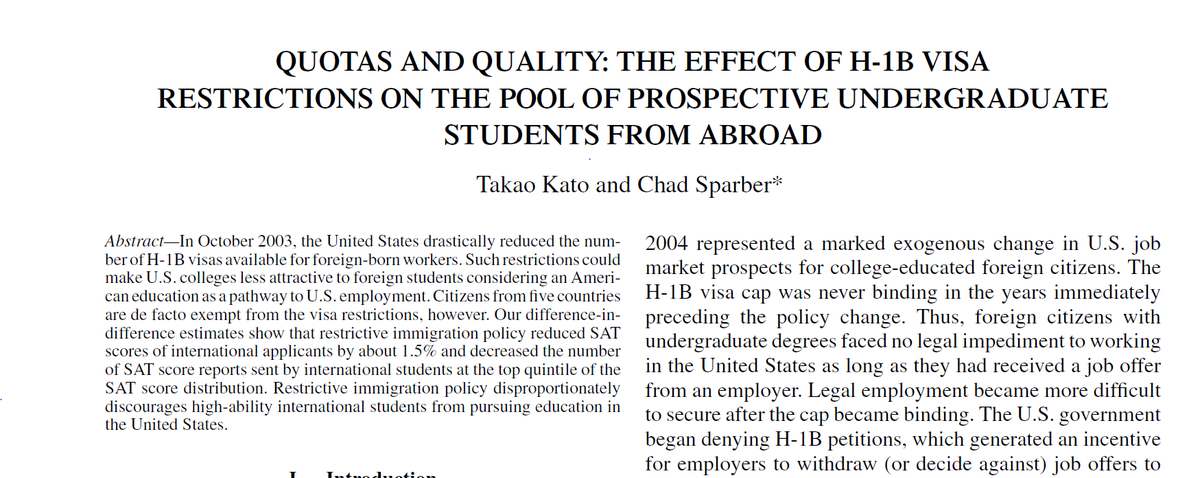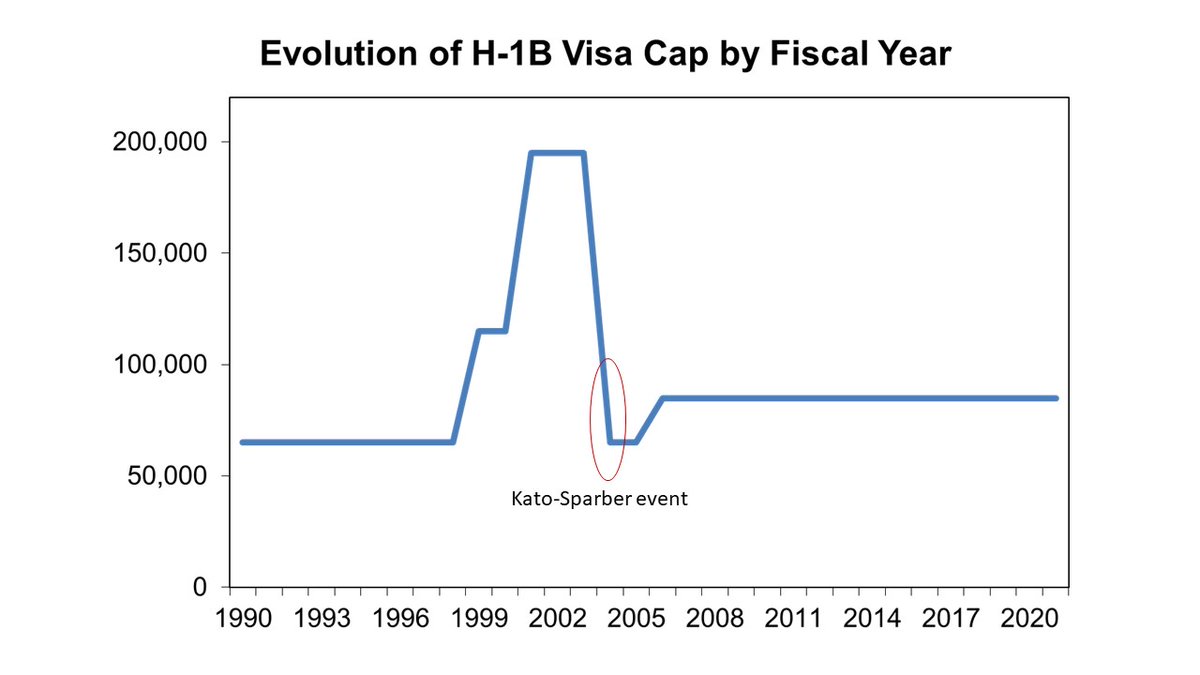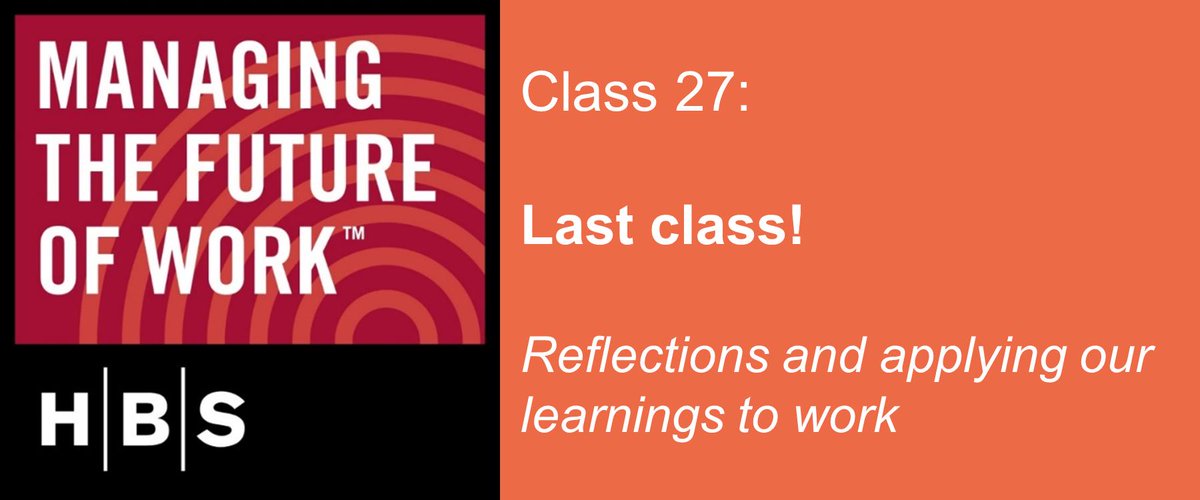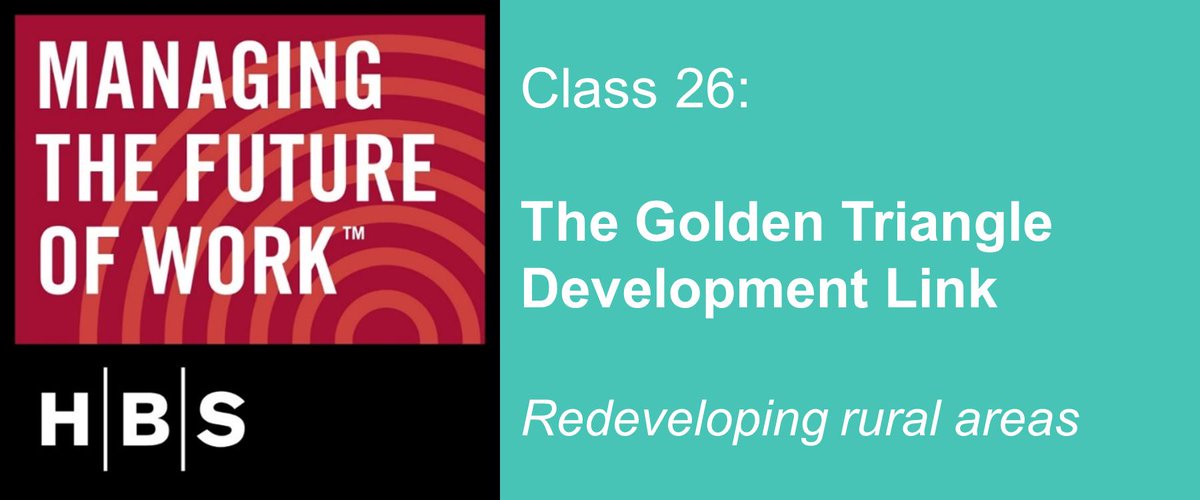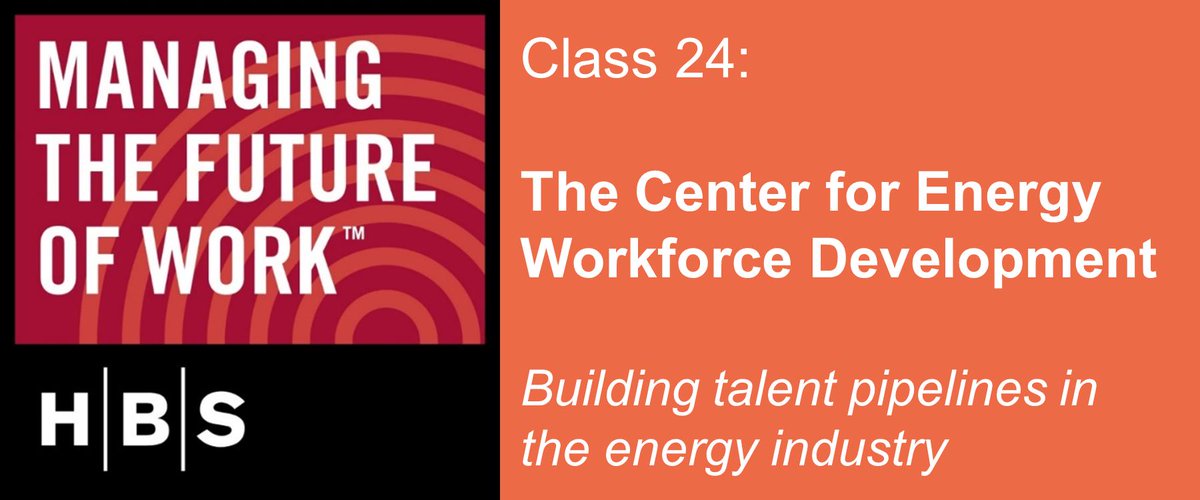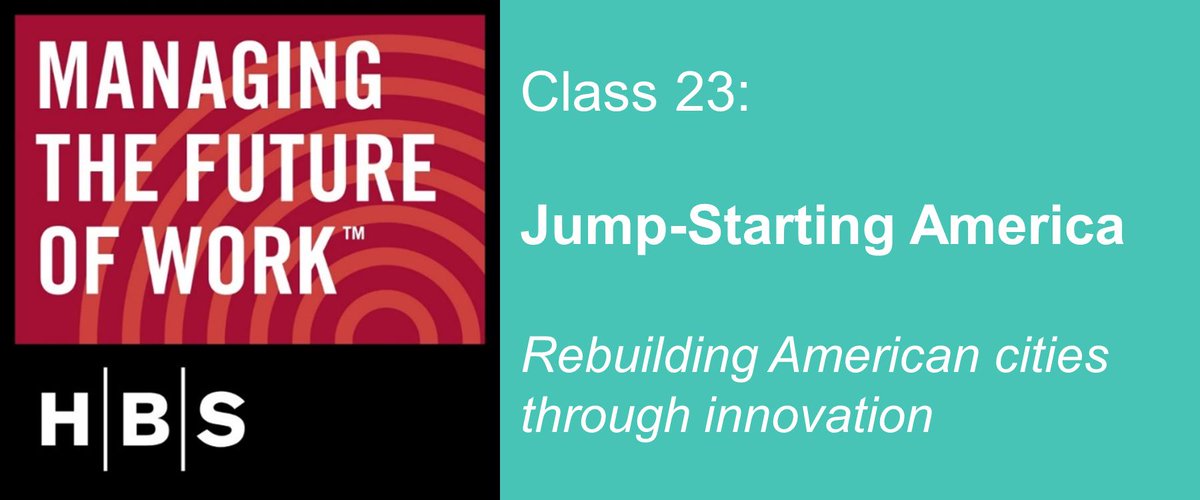
The Gift of Global Talent, my new book about high-skill immigration, launches tomorrow! A few words on what it covers (order link in bio, if you're so inclined): 
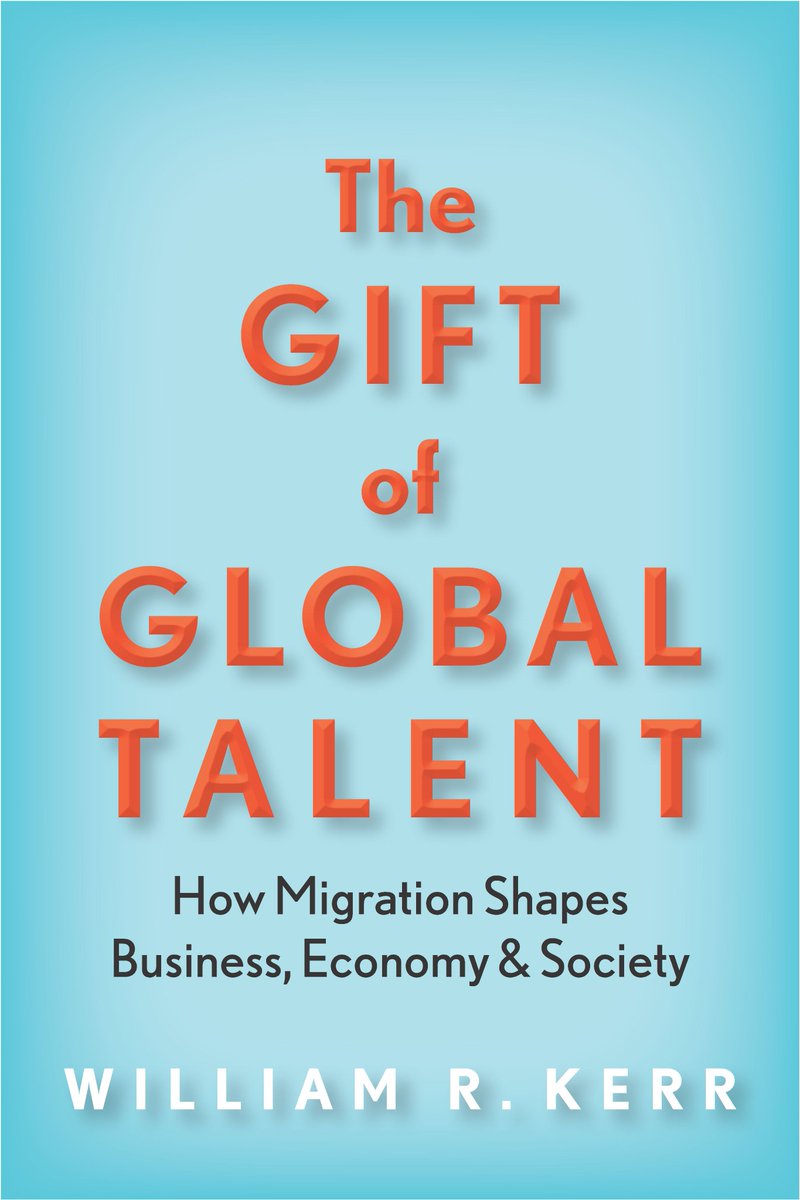
Talent is the world's most precious resource. You might argue for oil or data, but in today's knowledge economy the ability of a company or country to attract high-skilled workers is critical. A quick sample of some data and trends…
First: Migration increases in the level of talent. 5% of college graduates migrate. 10% of inventors migrate. And 31% of @NobelPrize winners have migrated to a new country for their work. 
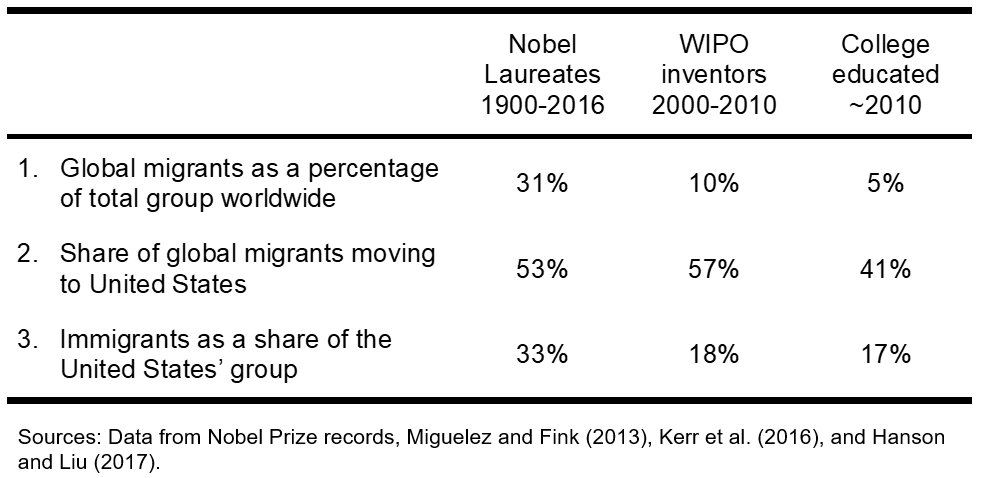
Second: The US has been the enormous beneficiary of this talent flow. Of migrating inventors who filed patents from 2000-2010, a staggering 57% came to the US to do their work. 
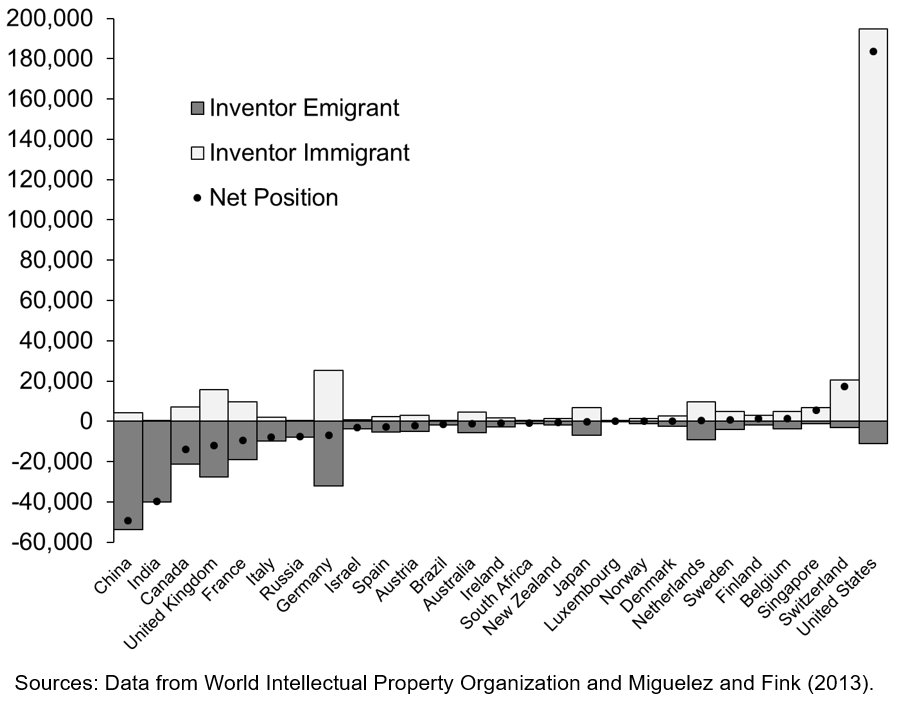
Third: These inflows have reshaped US innovation in advanced technology sectors. The contribution of immigrants to sectors like computer science and biotech have increased dramatically over the past 40 years. 
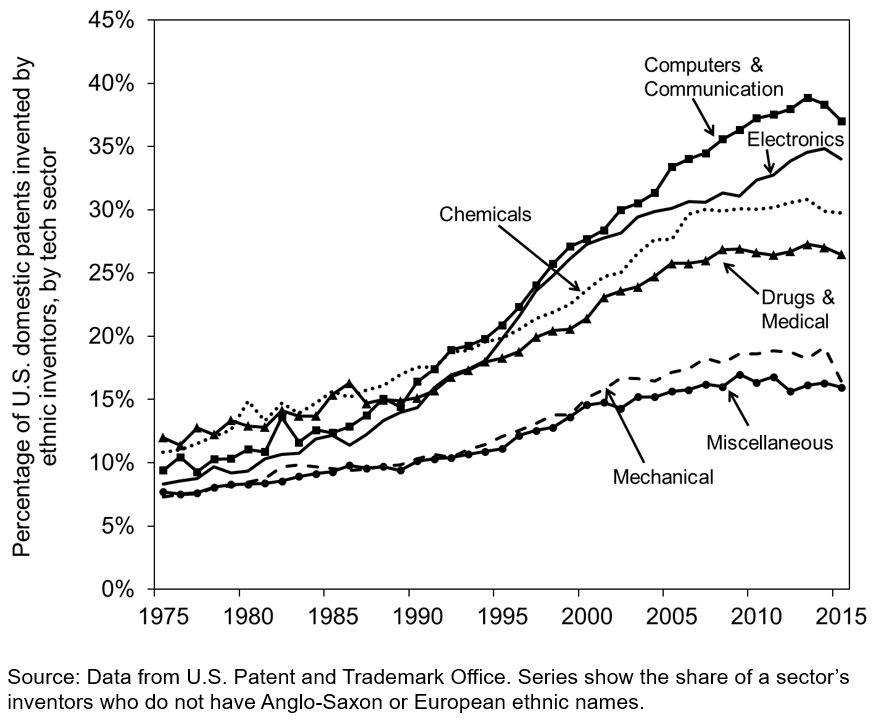
But the #US' leadership is in peril. Other countries are catching up on demographics alone. By 2030 #China & #India will account for 50% of young college graduates and 60% of young STEM-degree holders. Not long ago, most lived in the #OECD. 
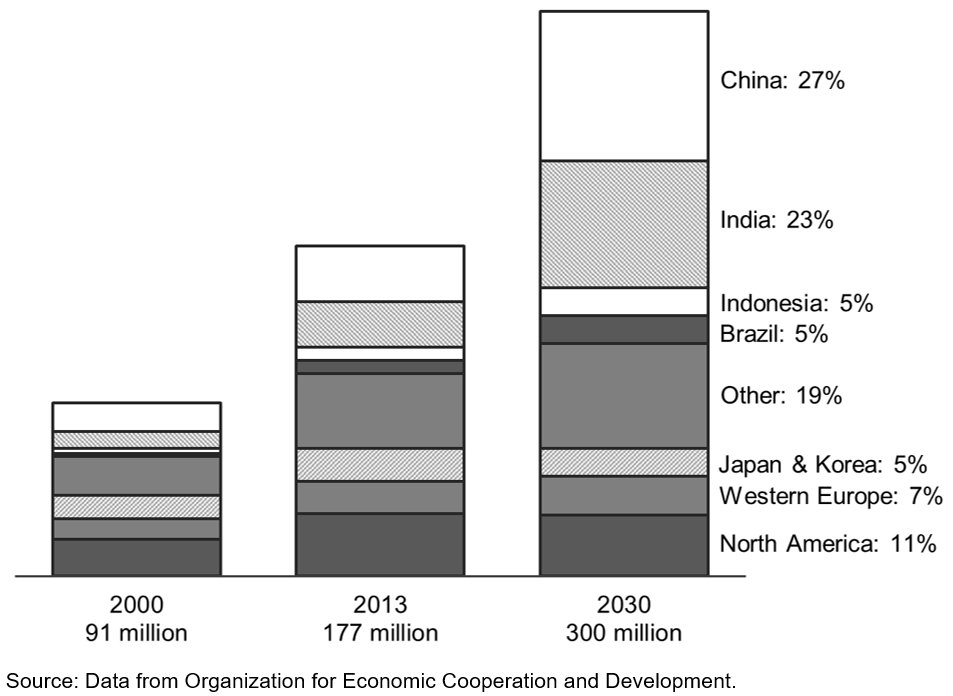
And many within America are questioning global talent, be it older tech workers who lose their jobs or the denizens of San Francisco frustrated by rising home prices and inequality.
blog.sfgate.com/stew/2013/12/0…
blog.sfgate.com/stew/2013/12/0…
Instead of meeting the challenge, the US keeps shooting itself in the foot. Our #highskill immigration system is broken and current rhetoric scares others away. I discuss these problems in a recent @thehill op-ed: thehill.com/blogs/congress…
Will the US continue to be the world leader in attracting global talent, or will it squander this gift? How can the gain from global talent flows be better shared? Please have a read and let me know your thoughts!
amzn.to/2vMHQsf
amzn.to/2vMHQsf
• • •
Missing some Tweet in this thread? You can try to
force a refresh

